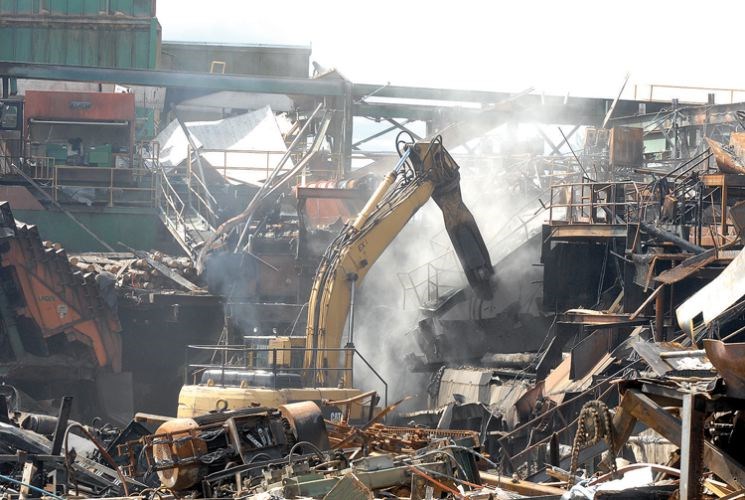A WorkSafeBC review has upheld a decision to impose more than $1 million worth of penalties against Babine Forest Products for a catastrophic explosion and fire at the Burns Lake sawmill.
In 2014, WorkSafeBC slapped a $97,500 administrative penalty and claims cost levy of $914,139.62 against the sawmill's owner, Oregon-based Hampton Affiliates for the January 2012 conflagration which killed two workers and injured more than 20 others.
Hampton subsequently requested a series of reviews, the latest being of a December 2015 in a decision by WorkSafeBC's chief review officer to maintain the penalties.
In a decision made on Nov. 1, WorkSafeBC review officer Melina Lorenz disagreed with some of the wording used in the original decisions, but said the evidence supports the conclusions and penalties imposed against the company.
A WorkSafeBC investigation concluded that wood dust was the major fuel for the explosion and fires.
It found that Hampton spent considerable amounts of money on upgrading the sawmill’s production capabilities and improving the dust management system by opening up floors, pressurizing the motor control centre panels and improving the waste conveyors systems.
But it also found little work had been done on the sawmill dust collection system even though the employer's investigation of a February 2011 explosion and fire identified a “very large fuel load” of dry dust. Also, no adequate actions had been taken to control airborne wood dust even though it was cited in December 2011 for unsafe levels within the mill.
"The report concluded that effective actions should have been taken to control both the airborne dispersal of wood dust as well as the excessive accumulations on floors and surfaces. Such actions might have prevented this incident," Lorenz said in her decision.
An ineffective inspection and maintenance system, wood and weather conditions, the waste conveyor configurations and inadequate supervision of clean-up and maintenance staff were also cited as factors.
On the evening in question, a fire alarm went off at around 8 p.m., but was not heard by all workers.
About seven minutes later, there was an explosion and a large fireball burst through the roof at the northeast side of the mill.
The fireball travelled from east to west, through the basement and operating levels of the mill and the ensuing fire completely destroyed the structure.
Robert Luggi, 45, and Carl Charlie, 42, were killed.
The administrative penalty was the maximum WorkSafeBC could impose against Babine. It took the basic penalty, based on the size of Babine's history of violations and the size of the sawmill's payroll, and added 30 per cent to account for the severity of the incident. Lorenz found it was appropriate.
"The employer failed to take effective steps to correct known combustible dust and electrical hazards that had previously resulted in a dust explosion and significant fire," Lorenz said.
"The evidence supports that workers’ safety was subordinated to production, as the employer continued to push for higher production levels before rectifying known hazards. "The underlying hazards from February 2011 remained relatively unchanged at the time of the catastrophic January 2012 explosion.
"I also note that the mill was a major employer in the region and the explosion devastated not only the injured workers, but their families and the entire community."
As for the claims cost levy, Lorenz said the potential actually exceed $1.2 million. The total was based on the cost of the 24 claims for death or serious injury, which added up to more than $5 million. However, a WorkSafeBC board officer opted for 75 per cent of the maximum, finding that Hampton's actions were not grossly negligent although they approached that standard.
Lorenz found that amount appropriate and noted it represents only six per cent of Hampton's payroll.
Lakeland Mills owner, Sinclar Group, has also appealed its penalty of $724,163 in total. A decision remains pending.
The full decision for Babine is posted with this story at pgcitizen.ca.



